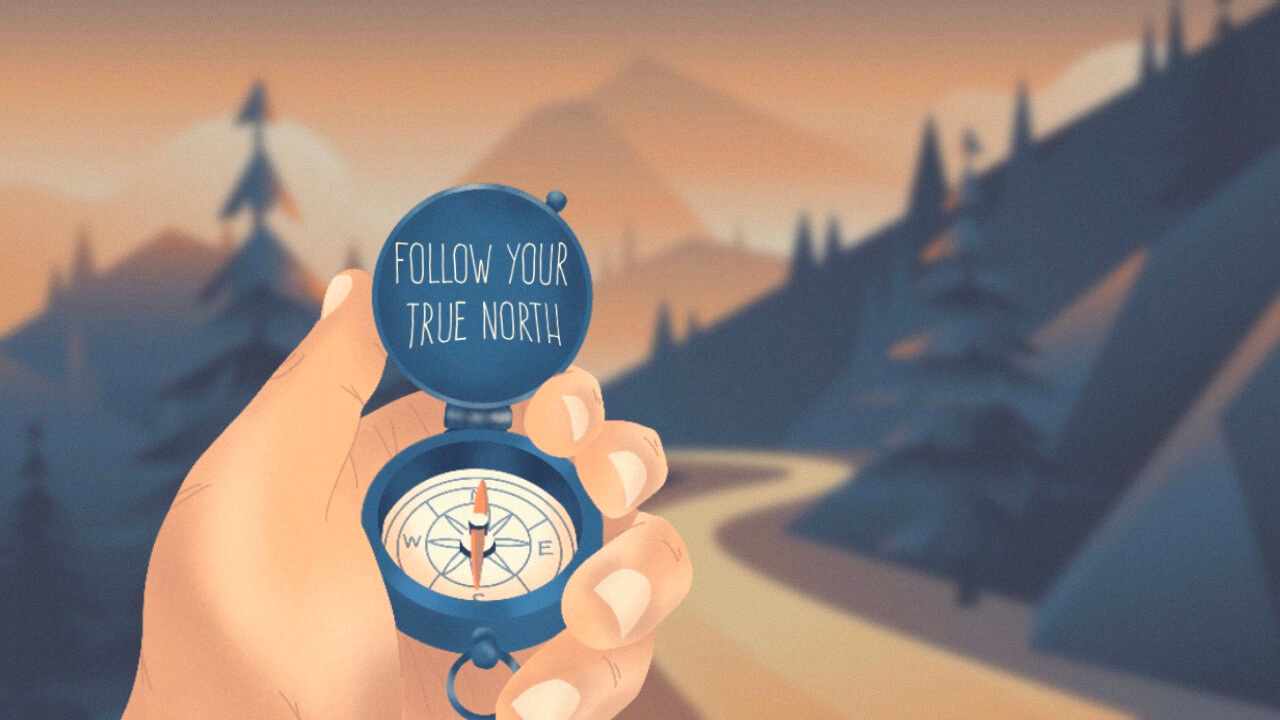It is difficult to stay focused on what is important in times of anxiety or uncertainty. When the ocean is calm and you can see land, it is easy to navigate true north; you can see the way forward with your own eyes, all you have to do is stay the course. However, when the tides of emotion are high, and the skies are cast over with fear, anxiety and confusion, it can appear impossible to know which way you are really heading. You are wrestling just to control the ship, yet unable to steer ‘true north’. It is in these moments of doubt and fear you begin to question which way north truly is, despite what your compass may be saying.
Psychology suggests that your value system, or true north, are statements and qualities about you which help steer you in the right direction when you are in a state of uncertainty. These values cut right through the anxiety of ‘what if’ fears, and help focus the mind onto clear ways you can continue to be the best person you can be.
At times of stress or uncertainty, you may be paying very close attention to your thinking, which is totally preoccupied with planning for a possible future, or ruminating on a past that can never be altered. In short, you spend the vast majority of your time listening to a very compelling story based on either experiences you can’t change, or ones that may never come true.
Values help ground you back into the ‘here and now’, and focus on what you can do, right now, to make a positive change in your life to improve feelings of wellbeing and commitment to who you are as a person. Values are about who you want to be in the world, and behaviours you wish to act on to achieve this. What sort of partner/sibling/employee/employer do you want to be and how will you achieve this value?
Although you can set goals to help achieve values, values are not goals. Goals can be achieved, a value is a choice you make to be the person you want to be. For example, in the moment, do you want to be mindful and curious, or do you wish to have the same fight with your spouse you have been having for years? A goal would be to do 20 press ups every morning, a value would be ‘It is important for me to be grateful for my health and explore fitness’.
Values are not a prison sentence, you should not feel chained to them like a set of rules which cause angst if not followed to the letter. Values are designed to inspire and motivate you to behave in a way congruent to you as a person. Values are about your behaviour, not dependent on other people’s behaviour. One excellent exercise you may wish to inspire you is the Values in Action Questionnaire.
Values can help guide you away from knee jerk responses of present moment fear/disgust, outrage, and toward long term behaviours you feel bring you a sense of well being and satisfaction. For example, your values may be based on freedom, courage, integrity and growth.
These are important descriptors which may help explain why you are feeling stifled, unsatisfied, lost, or confused. They can help focus your mind on what you would like to change, whilst moving away from a reactive, knee jerk reaction toward what is making you feel ‘trapped’ right this instant. If you are honest with yourself, and look to what you wish to be, not what you think you or others want you to be, values can serve as a guiding light when you appear to be lost in the engulfing darkness of the abyss.
If you would like support with your values system, you can contact us at Strategic Psychology via phone, email, or drop in to our office to arrange to meet with one of our trained psychologists for a confidential discussion.
